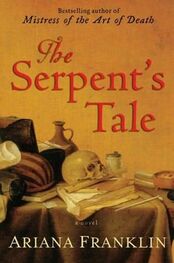The Captive Queen
A Novel of Eleanor of Aquitaine
A novel by Alison Weir
For seven special little people born in 2009:
Henry George Marston
Charlie Andrew Preston
Isla May Weir
Maisie Isobel Flora Weir
Lara Eileen Weir
Grace Daly Robinson
and my goddaughter ,
Eleanor Jane Borman
This is the worm that dieth not, the memory of things past.
—ST. BERNARD OF CLAIRVAUX,
De ConsiderationeThe most persistent hate is that which doth degenerate from love.
—WALTER MAP,
De Nugis CurialumAh, cruel fate,
How swiftly joy and sorrow alternate!
—BAIMBAUT DE VAQUEYRAS

Genealogical Table: Eleanor and Her Family Connections


PART ONE
A Marriage of Lions
1151-154
Please God, let me not betray myself, Queen Eleanor prayed inwardly as she seated herself gracefully on the carved wooden throne next to her husband, King Louis. The royal court of France had assembled in the gloomy, cavernous hall in the Palace of the Cité, which commanded one half of the Île de la Cité on the River Seine, facing the great cathedral of Notre Dame.
Eleanor had always hated this palace, with its grim, crumbling stone tower and dark, chilly rooms. She had tried to lighten the oppressive hall with expensive tapestries from Bourges, but it still had a stark, somber aspect, for all the summer sunshine piercing the narrow windows. Oh, how she longed for the graceful castles of her native Aquitaine, built of light mellow stone on lushly wooded hilltops! How she longed to be in Aquitaine itself, and that other world in the sun-baked south that she had been obliged to leave behind all those years ago. But she had schooled her thoughts not to stray in that direction. If they did, she feared, she might go mad. Instead, she must fix her attention on the ceremony that was about to begin, and play her queenly role as best she could. She had failed Louis, and France, in so many ways—more than anyone could know—so she could at least contrive to look suitably decorative.
Before the King and Queen were gathered the chief lords and vassals of France, a motley band in their scarlets, russets, and furs, and a bevy of tonsured churchmen, all—save for one—resplendent in voluminous, rustling robes. They were waiting to witness the ending of a war.
Louis looked drawn and tired, his cheeks still flushed with the fever that had laid him low for some weeks now, but at least, thought Eleanor, he had risen from his bed. Of course, Bernard of Clairvaux, that meddlesome abbot standing apart in his unbleached linen tunic, had told him to, and when Bernard spoke, Louis, and nearly everyone else in Christendom, invariably jumped.
She did not love Louis, but she would have done much, especially at this time when he was low in body and spirits, to spare him any hurt—and herself the shame and the fearful consequences of exposure. She had thought herself safe, that her great sin was a secret she would take with her to her grave, but now the one person who might, by a chance look or gesture, betray her and imperil her very existence was about to walk through the great doors at the end of the hall: Geoffrey, Count of Anjou—whom men called “Plantagenet,” on account of the broom flower he customarily wore in his hat.
Really, though, she thought resentfully, Louis could hardly blame her for what she had done. It was he, or rather the churchmen who dominated his life, who had condemned her to live out her miserable existence as an exile in this forbidding northern kingdom with its gray skies and dour people; and to follow a suffocating, almost monastic régime, cloistered from the world with only her ladies for company. For fourteen long years now, her life had been mostly barren of excitement and pleasure—and it was only in a few stolen moments that she had briefly known another existence. With Marcabru; with Geoffrey; and, later, with Raymond. Sweet sins that must never be disclosed outside the confessional, and certainly not to Louis, her husband. She was his queen and Geoffrey his vassal, and both had betrayed their sacred oaths.
Thus ran the Queen’s tumultuous thoughts as she sat with the King on their high thrones, waiting for Geoffrey and his son Henry to arrive, so that Louis could exchange with them the kiss of peace and receive Henry’s formal homage. The war was thus to be neatly concluded—except there could be no neat conclusion to Eleanor’s inner turmoil. For this was to be the first time she had set eyes on Geoffrey since that blissful, sinful autumn in Poitou, five years before.
It had not been love, and it had not lasted. But she had never been able to erase from her mind the erotic memory of herself and Geoffrey coupling gloriously between silken sheets, the candlelight a golden glow on their entwined bodies. Their coming together had been a revelation after the fumbling embarrassment of the marriage bed and the crude awakening afforded her by Marcabru; she had never dreamed that a man could give her such prolonged pleasure. It had surged again and again until she cried out with the joy of it, and it had made her aware, as never before, what was lacking in her union with Louis. Yet she had forced herself to forget, because Louis must never know. One suspected betrayal was enough, and that had hurt him so deeply his heart could never be mended. Things had not been the same between them since, and all she was praying for now was the best way out of the ruins of their marriage.
And now Geoffrey was in Paris, in this very palace, and she was terrified in case either of them unwittingly gave Louis or anyone else—the all-seeing Abbot Bernard in particular—cause to wonder what had passed between them. In France they did terrible things to queens who were found guilty of adultery. Who had not heard the dreadful old tale of Brunhilde, the wife of King Clotaire, who had been falsely accused of infidelity and murder, and torn to death by wild horses tethered to her hair, hands, and feet? Eleanor shuddered whenever she thought of it. Would Louis be so merciless if he found out that she had betrayed him? She did not think so, but neither did she want to put him to the test. He must never, ever know that she had lain with Geoffrey.
Even so, fearful though she was, she could not but remember how it had been between them, and how wondrously she had been awakened to the pleasures of love …
No, don’t think of it! she admonished herself. That way lies the danger of exposure. She even began to wonder if that wondrous pleasure had been worth the risk …
The trumpets were sounding. They were coming now. At any moment Geoffrey would walk through the great door. And there he was: tall, flame-haired, and intense, strength and purpose in his chiseled features, controlled vitality in his long stride. He had not changed. He was advancing toward the dais, his eyes fixed on Louis. He did not look her way. She forced herself to lift her chin and stare ahead. Virtuous ladies kept custody of their eyes, Grandmère Dangerosa had counselled her long ago; but Dangerosa herself had been no saint, and in her time used her eyes to very good effect, to snare Eleanor’s grandfather, the lusty troubadour Duke of Aquitaine. Eleanor had learned very early in life that women could wield a strange power over men, even as she did over Louis, although, God help them both, it had never been sufficient to stir his suppressed and shrinking little member to action very often.
Читать дальше









